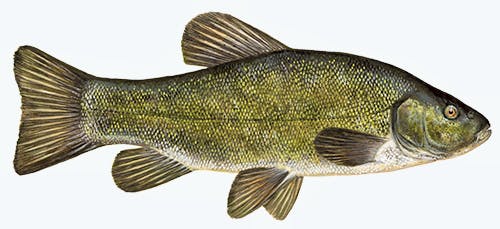All feed formulas developed by Aller Aqua at the Aller Aqua Research Centre follow these requirements to ensure proper growth and health:
Protein Needs: Moderate protein levels are sufficient—around 28–35% crude protein, depending on age and farming intensity.
Fat and Energy Needs: Dietary fat levels range from 5–8%. Tench has relatively low energy requirements due to its slow metabolism and bottom-dwelling lifestyle.
Essential Nutrients:
Vitamins (A, D, E, C, B-complex) support immunity and growth.
Minerals (Ca, P, Mg, Fe, Zn, Se) are essential for metabolic health and skeletal development.
Amino Acids: Lysine and methionine are crucial in formulated diets to support muscle development.
